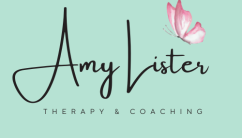You might have been told you should be over it by now.
Maybe years, even decades, have passed since what happened.
You’ve probably done your best to heal: maybe you’ve tried counselling, read self-help books, practised mindfulness, or simply carried on with life as best you can.
But deep down, something still feels unresolved.
Life keeps moving forward, yet a part of you feels left behind.
Or you may have felt you’d moved on, but something's happened that’s made you feel like it's come thundering back into your life.
This is a common experience for people healing after trauma, especially after sexual abuse, domestic abuse, or other relational trauma. Healing takes time, and it’s not always a straight line.
When Old Wounds Reappear
Sometimes you might notice familiar patterns repeating.
Maybe a new relationship brings up feelings of fear or mistrust.
Perhaps your child reaches an age that reminds you of a painful time in your own past. Or you find yourself over-functioning, always keeping the peace, meeting everyone else’s needs, while yours quietly takes a back seat.
You might hear the same old thoughts return:
“I’m not good enough.”
“It must be me.”
“There’s something wrong with me.”
These moments can feel frustrating, like you’ve gone backwards in your healing. But what if they’re not signs of failure at all? What if they’re your body and mind showing you where healing still needs space?

Why You Haven’t Failed to Move On
We don’t simply “get over” trauma. Especially not sexual trauma or domestic abuse.
We heal in layers, emotionally, physically, and somatically, often when life finally feels safe enough to face what once felt unbearable.
That’s why healing can feel cyclical. It’s not that you’re stuck; it’s that you’re revisiting places that are now safe to explore more deeply.
Your body might be saying, “Now I’m ready to release this.”
You haven’t failed to move on.
You’ve simply reached the next layer of healing.
What Healing Really Means
Healing isn’t about erasing the past or pretending it never happened.
It’s about reclaiming what trauma took from you: your voice, your boundaries, your sense of worth, your connection to yourself and others.
It’s about learning to trust again, not necessarily others at first, but your own instincts. It’s about finding safety inside your body and learning that calm doesn’t mean danger is coming next.
Every time you show yourself compassion instead of criticism, you’re healing.
Every time you pause, breathe, or notice what you feel instead of shutting down, you’re healing.
You are not broken, you are becoming.
You Deserve More Than Just Surviving
You deserve more than just coping or getting by.
You deserve to feel whole, safe, and alive.
Healing after trauma is about creating a life that feels yours, one where you can breathe deeply, set boundaries confidently, and connect with people who feel safe.
You don’t have to rush this process. You don’t have to do it alone.
Together, we can work at a pace that feels grounded and respectful of your story, helping you move from surviving to living with clarity, confidence, and compassion.

If This Resonates With You
If you recognise yourself in this, know that you’re not alone, and it’s not too late to begin again or move forward.
I specialise in supporting women who are healing after sexual or domestic abuse, and who feel stuck or disconnected despite years of trying to move on.
Through counselling, hypnotherapy, somatic coaching, and trauma-informed approaches, I help you gently reconnect to your body, your boundaries, and your sense of self, so you can move forward with freedom and self-trust.
You’re not behind.
You’re becoming.
One compassionate step at a time.
🕊️ Amy Lister Therapy & Coaching – helping you turn survival into strength, and pain into possibility.
📍Based in Eastleigh, Hampshire | Online, Telephone & In-person Therapy
